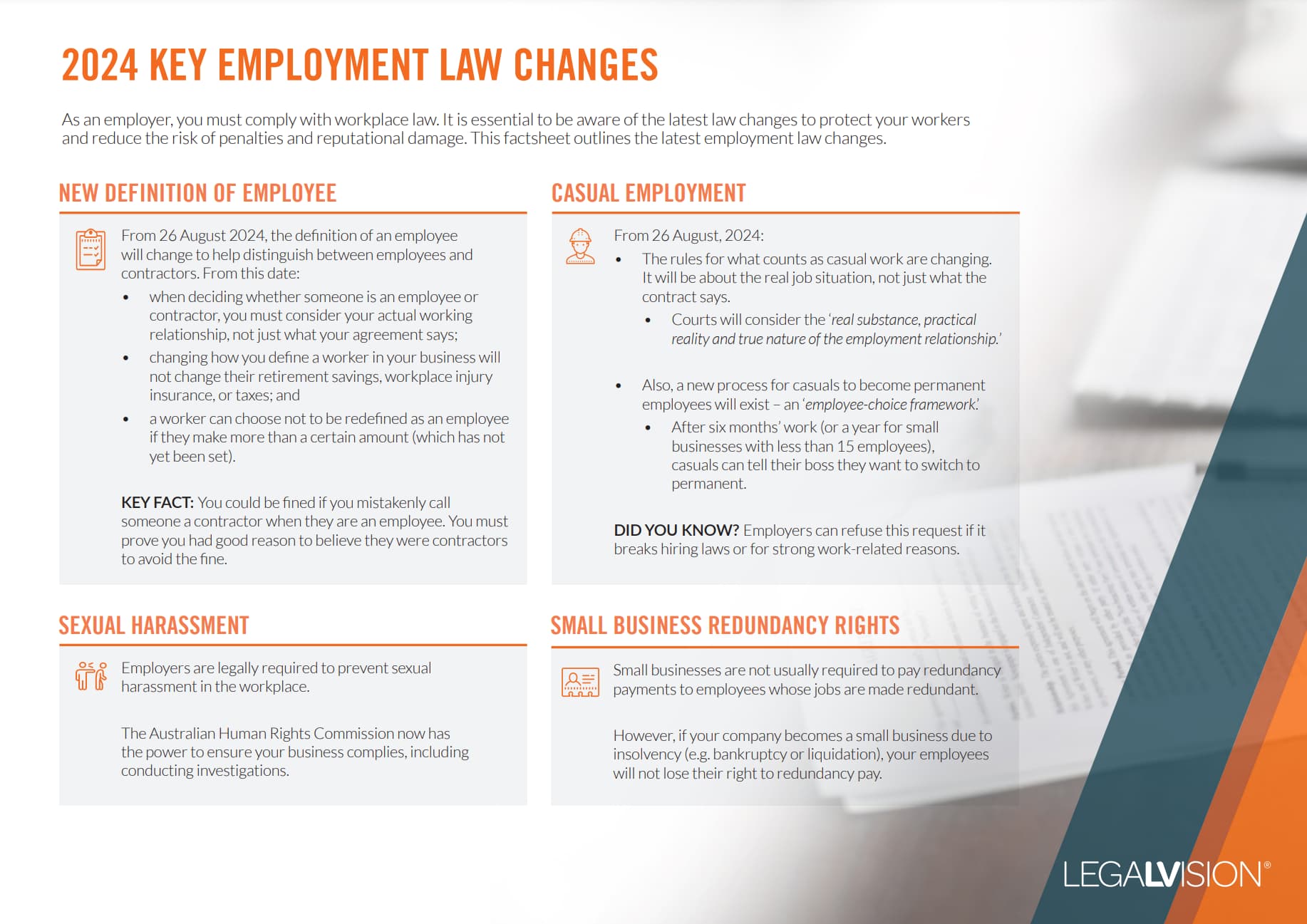As an employer in Australia, managing employee sick leave can be a delicate balance between ensuring staff welfare and maintaining operational efficiency. One question that often arises is whether employers can accept statutory declarations as evidence of sick leave. The answer is not a straightforward yes or no, as it depends on several factors. This article explores the considerations surrounding this issue which you, as an employer, should keep in mind moving forward.
Statutory Declarations
A statutory declaration is a written statement declared to be true in the presence of an authorised witness, such as a justice of the peace or a lawyer. It is a legally binding document, and making a false declaration can result in penalties under the Statutory Declarations Act 1959.
Sick Leave Entitlements under the Fair Work Act
The Fair Work Act 2009 (the ‘Act’) provides for paid personal/carer’s leave, commonly known as sick leave, for all employees covered by the national workplace relations system. Full-time employees are entitled to 10 days of paid personal/carer’s leave per year, while part-time employees receive a pro-rata amount based on their ordinary hours of work.
The Act does not specify the type of evidence required for sick leave. However, you may lawfully require your employee to provide evidence that would satisfy a reasonable person that they were genuinely unfit for work due to illness or injury. This evidence may include:
- a medical certificate from a registered health practitioner;
- a statutory declaration; or
- any other forms of evidence that you are willing to accept.
Statutory Declaration Acceptance
As an employer, you have the discretion to accept statutory declarations as evidence of sick leave. However, you should have a clear policy in place outlining the circumstances under which you will accept statutory declarations and any limitations or requirements. Circumstances where employers may accept statutory declarations include:
- Short-term absences: Many employers accept statutory declarations for short-term sick leave, typically one or two days, when visiting a doctor may not be practical or necessary.
- Remote locations: In remote areas where employees have limited access to medical practitioners, statutory declarations may be accepted as an alternative form of evidence.
- Casual or part-time employees: Some employers may be more lenient in accepting statutory declarations from casual or part-time employees who may not have consistent access to healthcare providers.
Limitations and Requirements
While statutory declarations can be accepted, you may choose to impose certain limitations or requirements, such as:
- Capping the number of days: You may limit the number of days per year for which statutory declarations will be accepted as evidence of sick leave.
- Requiring additional information: You could also request additional details in the statutory declaration, such as the nature of the illness or injury and the expected duration of absence.
- Reserving the right to request medical certificates: As an employer, you reserve the right to request a medical certificate, particularly for extended periods of sick leave or in cases where there are concerns about the genuineness of the absence.

As an employer, it is essential to understand what employment laws have changed and their implications for your business — particularly the changes to the Fair Work Act 2009 through the new Closing the Loopholes legislation.
Best Practices
When considering whether to accept statutory declarations as evidence of sick leave, there are a number of practices you should follow.
1. Develop a Clear and Consistent Policy
You should establish a policy that outlines the circumstances under which you will accept statutory declarations, any limitations, and the process for submitting them.
2. Communicate the Policy
It is important to ensure that you clearly communicate this policy to all employees, preferably in writing, to avoid misunderstandings. This will protect you in the instance of any disputes. Additionally, you should consistently apply the policy to all of your employees without discrimination or favouritism.
3. Consider Individual Circumstances
While adhering to the policy, you should also consider individual circumstances and be willing to exercise reasonable discretion when appropriate. Your employee may be suffering adverse circumstances and unable to fulfil the requirements in your policy, but at no fault of their own.
4. Maintain Records
Furthermore, you should keep records of the statutory declarations that you receive, including:
- dates;
- reasons for the absence; and
- any follow-up actions that you have taken.
Key Takeaways
While you have the discretion to accept statutory declarations as evidence of sick leave, it is important to have a clear and consistent policy in place. Statutory declarations can be a practical solution for short-term absences or in situations where employees have limited access to medical practitioners. However, as an employer, you may choose to impose limitations or require additional information to ensure that sick leave claims are genuine. By following best practices and considering individual circumstances, employers can strike a balance between supporting employee well-being and maintaining operational efficiency.
If you have any questions regarding when to accept an employee’s leave, our experienced employment lawyers can assist as part of our LegalVision membership. For a low monthly fee, you will have unlimited access to lawyers to answer your questions and draft and review your documents. Call us today on 1300 544 755 or visit our membership page.
We appreciate your feedback – your submission has been successfully received.












